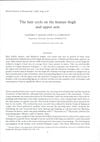 67 citations,
July 1985 in “British journal of dermatology/British journal of dermatology, Supplement”
67 citations,
July 1985 in “British journal of dermatology/British journal of dermatology, Supplement” Men's thigh hair grows longer and has a longer growth cycle than women's, but arm hair growth is similar between genders.
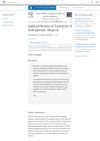 March 2024 in “Facial plastic surgery clinics of North America”
March 2024 in “Facial plastic surgery clinics of North America” Finasteride and minoxidil are approved treatments for hair loss, and hair transplants can be effective but require careful patient selection.
 November 2023 in “The journal of investigative dermatology/Journal of investigative dermatology”
November 2023 in “The journal of investigative dermatology/Journal of investigative dermatology” Early treatment and multidisciplinary care are key to managing Frontal Fibrosing Alopecia and preventing further hair loss.
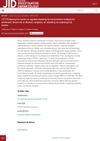 April 2023 in “Journal of Investigative Dermatology”
April 2023 in “Journal of Investigative Dermatology” Sweating can potentially be controlled through olfactory receptors, with β-ionone playing a key role, and responses may vary between genders.
August 2004 in “CRC Press eBooks” New hair restoration techniques look more natural, increasing their popularity.
 1 citations,
May 2021 in “Revista Eletrônica Acervo Científico”
1 citations,
May 2021 in “Revista Eletrônica Acervo Científico” The document concludes that more research is needed on treatments for hair loss in both men and women, especially on medication combinations and their benefits.
January 2022 in “International journal of advanced research” Most Saudi adults use multivitamins for hair growth, often based on medical or pharmacist advice.
 January 2021 in “International Journal of Homoeopathic Sciences”
January 2021 in “International Journal of Homoeopathic Sciences” Homeopathy may help with hair loss caused by various factors, especially during the pandemic.
 2 citations,
September 2012 in “Actas Dermo-Sifiliográficas”
2 citations,
September 2012 in “Actas Dermo-Sifiliográficas” Societal pressure for the perfect body leads to health risks and disorders.
 September 2024 in “Ain Shams Medical Journal”
September 2024 in “Ain Shams Medical Journal” Androgenic alopecia causes hair thinning, and treatments include minoxidil, finasteride, and light therapy.
 1 citations,
November 2022 in “DOAJ (DOAJ: Directory of Open Access Journals)”
1 citations,
November 2022 in “DOAJ (DOAJ: Directory of Open Access Journals)” Male and female human hairs have different microscopic structures that can help in forensic analysis.
 27 citations,
September 1992 in “The Lancet”
27 citations,
September 1992 in “The Lancet” ICL is a condition with low CD4+ T cells like AIDS but not caused by HIV, and normal CD4+ T cell counts may vary between men and women.
 18 citations,
November 2007 in “Annals of Surgery”
18 citations,
November 2007 in “Annals of Surgery” Finasteride reduces inflammation and improves immune response after trauma by altering hormone levels.
6 citations,
March 2020 in “Anais Brasileiros de Dermatologia” CTLA4 gene variants are not linked to alopecia areata in Monterrey's Mexican population.
April 2023 in “Journal of Investigative Dermatology” In-person laser treatments help hair growth in androgenetic alopecia.
26 citations,
January 1990 in “Mycoses” Most tinea capitis cases in Rotterdam were caused by Trichophyton violaceum, mainly affecting Moroccan immigrant children.
 22 citations,
June 2012 in “Journal of Investigative Dermatology”
22 citations,
June 2012 in “Journal of Investigative Dermatology” Adiponectin may stimulate hair growth and could be a potential treatment for promoting hair growth.
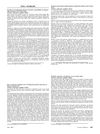 April 2012 in “Journal of the American Academy of Dermatology”
April 2012 in “Journal of the American Academy of Dermatology” Psoriasis patients have more comorbidities, including autoimmune diseases and other health issues, than those without psoriasis.
8 citations,
January 2018 in “Science of the total environment” Australian fur seals' fur shows high levels of pollutants, which may be linked to hair loss in young female seals.
December 2019 in “IP Indian journal of clinical and experimental dermatology” Androgenetic alopecia is more common in Indian men than women, and family history is a strong risk factor.
 September 2024 in “Health of Man”
September 2024 in “Health of Man” High uric acid can cause health issues, so managing it with lifestyle changes is important.
 2 citations,
July 2021 in “Journal of Dermatology and Dermatologic Surgery”
2 citations,
July 2021 in “Journal of Dermatology and Dermatologic Surgery” Exposure to the hair loss drug finasteride during pregnancy can cause genital anomalies in male babies, but not in female babies. It's best to avoid this drug in women who could potentially become pregnant.
Healthy lifestyle and weight control improve skin and scalp health in people in their 20s and 30s.
 November 2024 in “Annals of PIMS-Shaheed Zulfiqar Ali Bhutto Medical University”
November 2024 in “Annals of PIMS-Shaheed Zulfiqar Ali Bhutto Medical University” Trichoscopy is an effective, non-invasive way to diagnose telogen effluvium.
 October 2023 in “Journal of health sciences and medicine :”
October 2023 in “Journal of health sciences and medicine :” Patients on long-term hemodialysis often have skin problems related to their treatment.
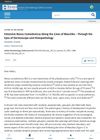 January 2025 in “Indian Dermatology Online Journal”
January 2025 in “Indian Dermatology Online Journal” Treatment reduced cystic lesions but didn't change existing Nevus Comedonicus.
 January 2024 in “International Journal of Research Publication and Reviews”
January 2024 in “International Journal of Research Publication and Reviews” The herbal hair serum with rosemary, hibiscus, and neem is safe and effective for hair care.
 29 citations,
September 2012 in “Dermatologic Clinics”
29 citations,
September 2012 in “Dermatologic Clinics” Hair disorders are caused by a complex mix of biology, genetics, hormones, and environmental factors, affecting hair growth and leading to conditions like alopecia.




















